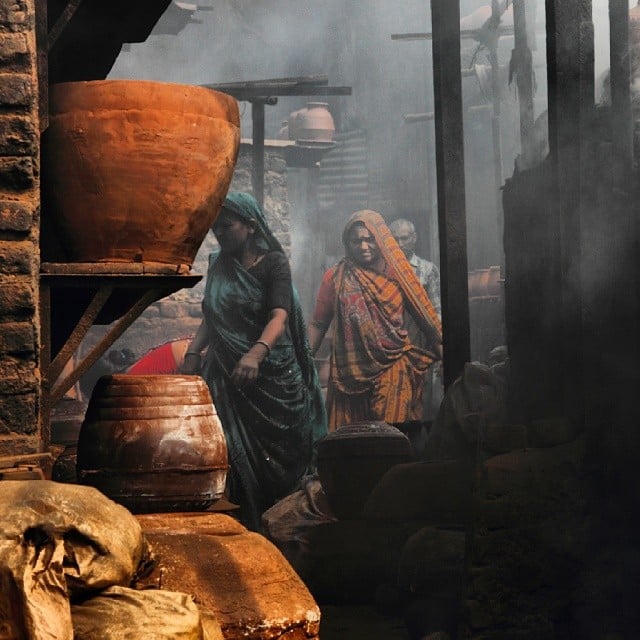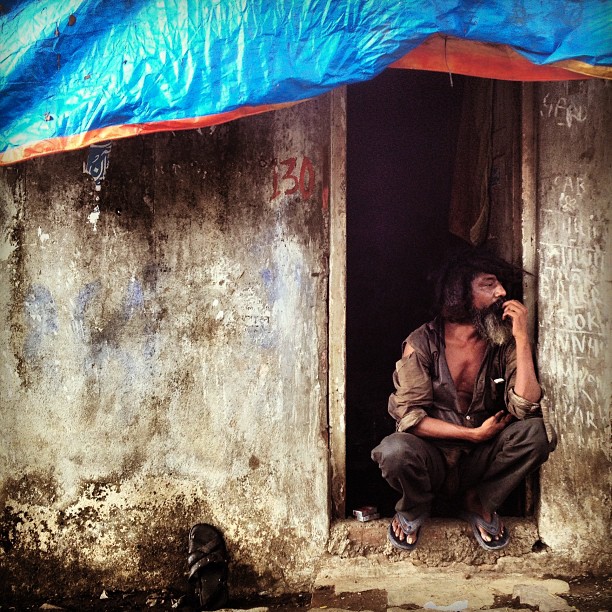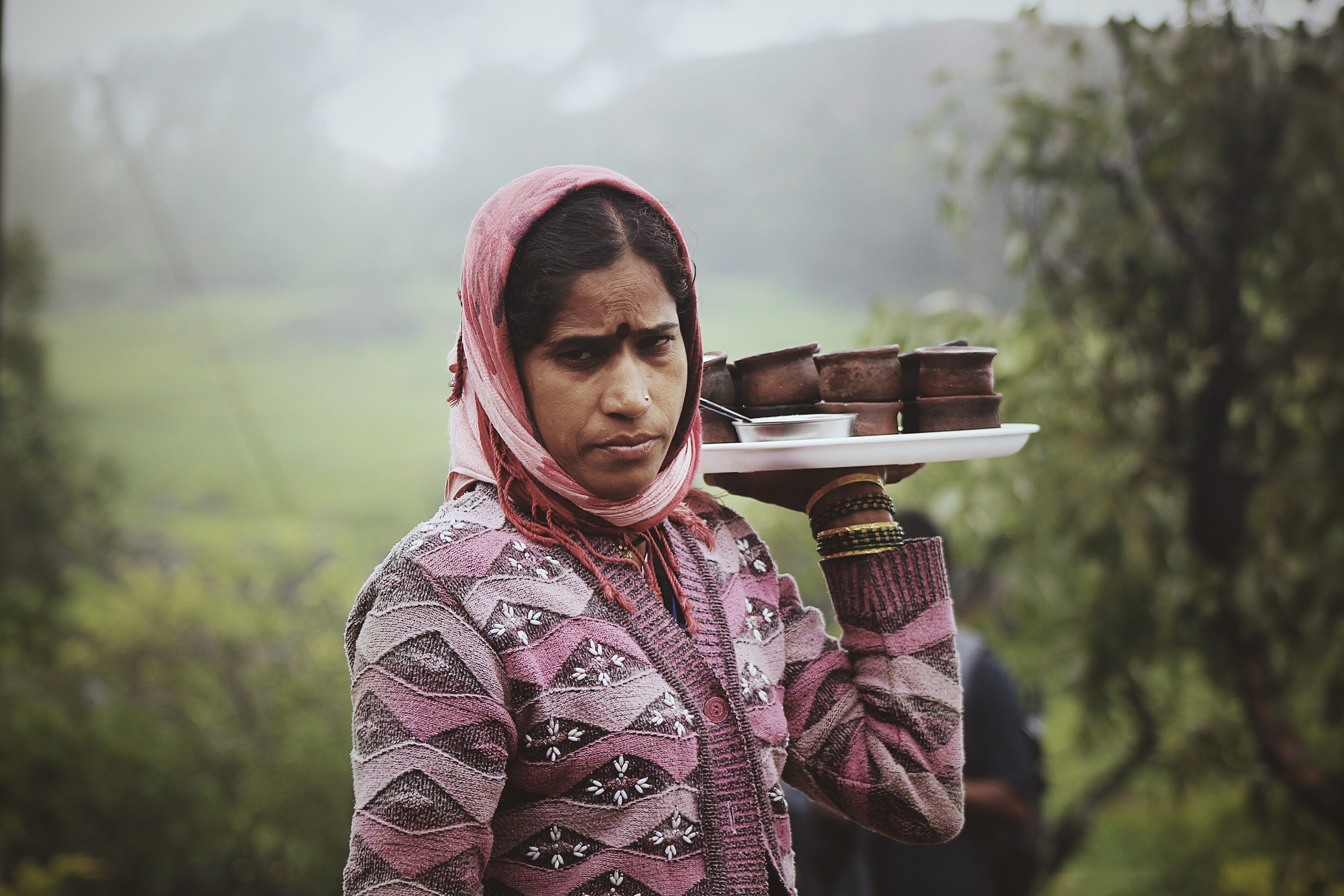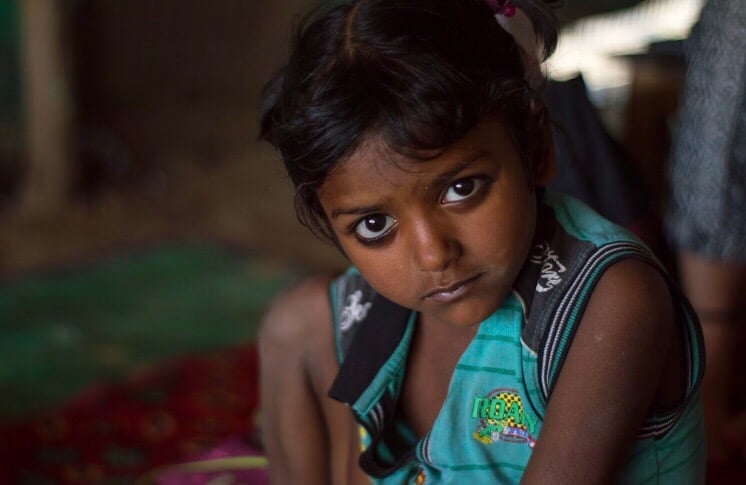
I am Gita*. My father and I came to Dharavi when I was a small child to live with my aunt. It is a slum, but I am proud to live here – we work hard in Dharavi. I am a potter, and I learned my trade from my father. He passed away last year, the week before I turned twenty. I miss him. Especially now. But it is good he does not know the suffering we are experiencing. The COVID-19 has crept into our homes. I hear many things on the streets — I’m not sure what to believe. I fight fear, but they say the numbers are rising. Aadi’s father died in quarantine just last week, he was a tea vendor.
What I do know is that we are hungry. The government demands that we stay in our homes until early May, that we only leave for food, but for me, the problem is bigger than that. The potters’ markets are closed, so I cannot sell my pots. For three weeks now, no business. Because of this, there are not enough Rupees for food. Before now, after a day of selling my pots, I could buy a little flour and some vegetables for our evening meal. But now, prices are even higher and I have no Rupees left. I have run out of rice and only have two handfuls of flour left to make chappatis.
Many of my friends have children, and they are desperate. Because they cannot work, they beg on the edge of Dharavi. Their children have begun to starve; there is the sound of crying in the air. Not the sounds of laughter we once had.
I am losing hope. I am not the only one. If we survive until May, what then?
Lockdown Looks Different in India.

In the midst of the COVID-19 crisis, government orders to “stay home” reverberate around the globe. For so many living in first world economies, this comes as a blow to businesses and livelihoods, but it also comes with the promise of aid from the government. Here in the United States, a COVID-19 stimulus law known as the CARES Act has been passed to provide relief, and while these days are challenging in the USA, the view from here remains a privileged one.
In India, however, the effects of the crisis are much more severe. One of our Search + Rescue Teams calls India home, and they fear that Prime Minister Modi’s order on March 24th for total lockdown may worsen the already fragile economy and cause even more suffering. According to the Legatum Prosperity Index, India’s overall prosperity ranking is 101 out of 167 countries. This combined ranking is made up of several indicators, but a closer look shows that India is ranked 120 for “Living Conditions” such as material resources, shelter, and basic services and 109 for “Health,” which includes access to necessary services, health systems, illness and mortality rates. Add to that, the fallout from COVID-19 and a nationwide lockdown, and the vulnerable may find themselves in absolute desperation.

Economists forecast that this lockdown will mean immediate scarcity of food and supplies for an overwhelming majority who live “hand-to-mouth.” In a survey of 300 million Indian households, 73% live in rural areas and only ten percent of those surveyed have salaried jobs. According to the World Bank, for India’s 270 million poor, casual labor (temporary work lasting just days, weeks, or months) and self employment are the main source of income in urban areas, and rural poor typically only find casual labor. In normal circumstances, the urban and rural poor spend 56% of their paychecks on food. Suddenly, with the lockdown in place, millions no longer have a way to earn income which jeopardizes their food security. Migrant workers who had come from rural areas to the cities to earn a living are being let go without pay, and are now stranded, hours from their villages, without a functioning transportation system or money to survive on the streets.
When it comes to health care, the hard reality is that millions in India already fall into poverty every year from healthcare costs alone. The World Health Organization recommends one doctor for every 1,000 people, but in India that ratio doesn’t meet the WHO standard, and depending on the region, that number climbs to one doctor for over 10,000 people. An already strained system may be stretched to the breaking point by COVID-19. This hard news is compacted by the fact that so many are incapable of social distancing while living in slums. News stories report a drastic shortage of personal protection equipment, doctors treating infected patients in rain jackets and their last available face masks, and healthcare workers evicted from their homes by landlords fearful of spread of the disease.
So, what happens To survivors of human trafficking during COVID-19?
While India races to contain the pandemic, the most vulnerable remain trapped. It’s estimated that 8 million people living in India are enslaved through human trafficking, with the average age of survivors being ten to fourteen years old. The main causes of exploitation stem from gender discrimination against women and girls, general vulnerability due to poverty not exclusive to either sex, and a desperation, born of that poverty, to support their families. Daughters and sons are bought and sold, and young people travel long distances for job offers that end in trickery and bonded labor. Now, they face an even more desperate situation with the COVID-19 pandemic growing throughout the country.
The Exodus Road’s Country Director in India explained that the lockdown and general fear of the virus has led to a decrease in brothel customers, yet he and his team are worried that survivors will experience an even greater need for basic necessities. Moreover, their team and local police have been forced to suspend intervention operations due to COVID-19. While our national team cannot leave their homes, they continue to do what they can to research and investigate online, sharpening their skills and readying their data collection for the moment they are allowed to move freely and work with police again. For now, the TER team of national operatives and social workers are safe, but they are transparent about the future being uncertain for everyone.

“We are all praying for the situation and deep down our hearts are afraid and worried and do not know what is going to happen in the future. Everyone on our team is in touch with each other and so far all are well and healthy.” — Sudir*, India Country Director
In the meantime, the communities where the team lives and works continue to escalate in need. Price gouging for food has begun, and in the 400 slum communities where our Sudir lives, women are sitting outside, begging for food. Our national police partners are expected to continue working in increasingly intense conditions, without face masks or personal protection, because of lack of funding.
The Exodus Road is committed to stepping in on behalf of the vulnerable, and we are working towards providing specific relief resources for these communities where our national team lives. We’ll be primarily helping to provide food for those most in need.
These are dark days around the globe, and the days may become darker still. The pandemic continues to make the vulnerable even more vulnerable — a reality perhaps seen most horrifically and dramatically in the country of India and its people.
If you’d like to join with us in providing support and relief resources for our Search + Rescue Teams and the communities in India where we work, consider donating to our COVID-19 Emergency Response Fund.
*Sudir is representative to protect our Country Director’s identity.
*Gita’s story is fictional and representative of the current situation in a slum of Mumbai.





